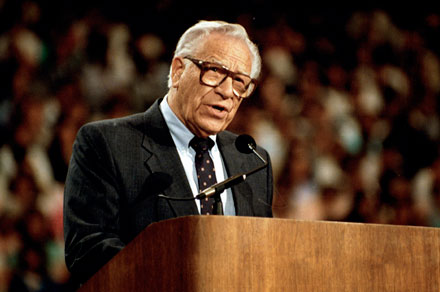June 27, 2020 (Saturday)
I was browsing the internet and came across a headline that yelled to me: “13 Cars You Ought to Drive Before You Kick the Bucket.”
What’s wrong with that headline? First of all, part of the phrase is totally unnecessary and redundant: “Before you kick the bucket” means, of course, “before you die.” Now, hear me out — how many cars do you intend to drive after you die? Certainly, it goes without saying that driving cars is an activity available only to people who are alive on earth. “But,” you say, “the intent of the phrase is to create an air of urgency. ‘Before you die’ is meant to make you feel like you absolutely must do this while there is time.” O.K., I’ll go along with that. But why use the phrase, “Kick the Bucket,” when “die” would suffice. And where did the phrase, “kick the bucket,” come from, anyway? Well, if you want to look it up, you will probably be disappointed as I was when I investigated the source of the saying. Lots of ideas, but nothing for certain.
In addition, you might be interested in knowing how many ways there are for describing death. I tried to count the substitute expressions for “death” in a Wikipedia article, but lost the exact count as I scrolled through the pages, but I counted at least 135 such descriptions. Seems it is such an unpleasant subject that we invent ways of describing it without the painful choice of just simply saying that people “died.”
We Christians sometimes just come right out and say that our loved ones “died.” But more often we use other words, such as “passed away” or “went home to be with the Lord.” “Death” is described in the Bible as our “last enemy” which shall finally be destroyed at the end of time. But it has already been defeated by the Lord Jesus Christ when He rose from the dead. For His followers there is no death. Jesus said so. He said, “He that lives and believes in me shall never die.” (John 10). Actually that sentence from Jesus is a translation of an expression in Greek which leaves no doubt that Jesus chose the strongest expression possible to tell us that death for the child of God is simply a door through which we enter into the eternal presence of our Savior.
The Bible says, “Absent from the body, present with the Lord.” In a split second we leave our earthly body and enter into God’s presence. As a grand old hymn reminds us, we find victory in Jesus, and can taunt death with Scripture: “Oh death, where is your sting? O death, where is your victory?” (1 Corinthians 15:55).
In his first letter to the Christians at Corinth, Paul summed up the situation: “..sin is the sting that results in death, and the law gives sin its power. But thank God! He gives us victory over sin and death through our Lord Jesus Christ. So, my dear brothers and sisters, be strong and immovable. Always work enthusiastically for the Lord, for you know that nothing you do for the Lord is ever useless” (1 Corinthians 15:56-58 NLT).
Listen as George Beverly Shea sings about victory in Jesus:

VICTORY IN JESUS
Eugene Monroe Bartlett, Sr.
1939
Chorus:
Oh victory in Jesus, my Savior, forever!
He sought me and bought me
with His redeeming blood;
He loved me ere I knew Him,
and all my love is due Him-
He plunged me to victory
beneath the cleansing flood.
Verses:
I heard an old, old story,
how a Savior came from glory,
How He gave His life on Calvary,
to save a wretch like me;
I heard about His groaning,
of His precious blood’s atoning,
Then I repented of my sins
and won the victory.
I heard about His healing,
of His cleansing pow’r revealing,
How He made the lame
to walk again and caused the blind to see;
And then I cried, “Dear Jesus,
come and heal my broken spirit,”
And somehow Jesus came
and brought to me the victory.
I heard about a mansion
He has built for me in glory,
And I heard about the streets of gold
beyond the crystal sea;
About the angels singing
and the old redemption story-
And some sweet day I’ll sing up there
the song of victory.
_______________________________________________________________
_______________________________________________________________
*substitute expressions for death
